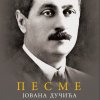Rođen u Nišu 1938, studije književnosti završio je u Beogradu, a doktorirao je na poeziji Miloša Crnjanskog, što je prvi doktorski rad na ovu temu. Radio je u Institutu za književnost i umetnost (1964-1990), bio osnivač i glavni urednik časopisa "Književna istorija", urednik srpske sekcije "Amerikanskog Srbobrana", najstarijih srpskih novina u dijaspori, član redakcije "Književnih novina", predsednik Udruženja književnika Srbije (1986-1988), predavač na mnogobrojnim univerzitetima na svih pet kontinenata, poslednji vršilac dužnosti predsednika Saveza književnika Jugoslavije, kao i jedan od osnivača Vukove zadužbine.
U vreme žestokih rasprava u Francuskoj 7, duboko razočaran tadašnjim kulturnim (ne)prilikama, Petrov je 1991. dao ostavku na mesto prvog čoveka UKS i otišao u Japan, gde je godinu dana predavao na Univerzitetu Hokaido. Dve godine kasnije prešao je u Pitsburg gde je na tamošnjem univerzitetu na Katedri za slavistiku predavao Srpsku kulturu i jezik i bio saradnik "Centra za ruske i istočnoevropske studije".
Kao pesnik se oglasio zbirkom "Sazdanac" (1971), posle koje su usledile knjige "Poslednje Kosovo", "Istočni dlan", "Kamen i zvono", "Peta strana sveta". Pesme su mu prevedene na 29 jezika, a zbirke objavljene u Americi, Engleskoj, Švedskoj, Francuskoj, Španiji, Rusiji, Poljskoj, Kini, Japanu... Objavio je četiri romana:"Kao zlato u vatri" (koji je imao tri izdanja), "Turski Beč", "Lavlja pećina i "Memoroman".
Autor je i mnogobrojnih knjiga kritika, eseja i studija, kao što su "Razgovor s poezijom", "U prostoru proze", "Krila i vazduh", kao i nekoliko veoma zapaženih antologija.
Izvor: B92






